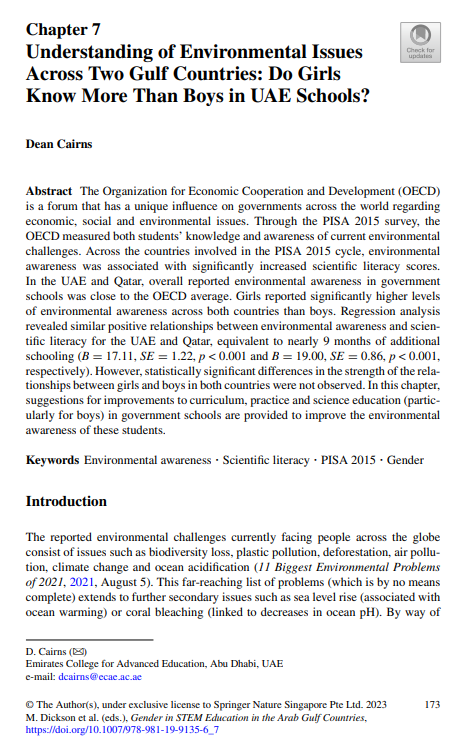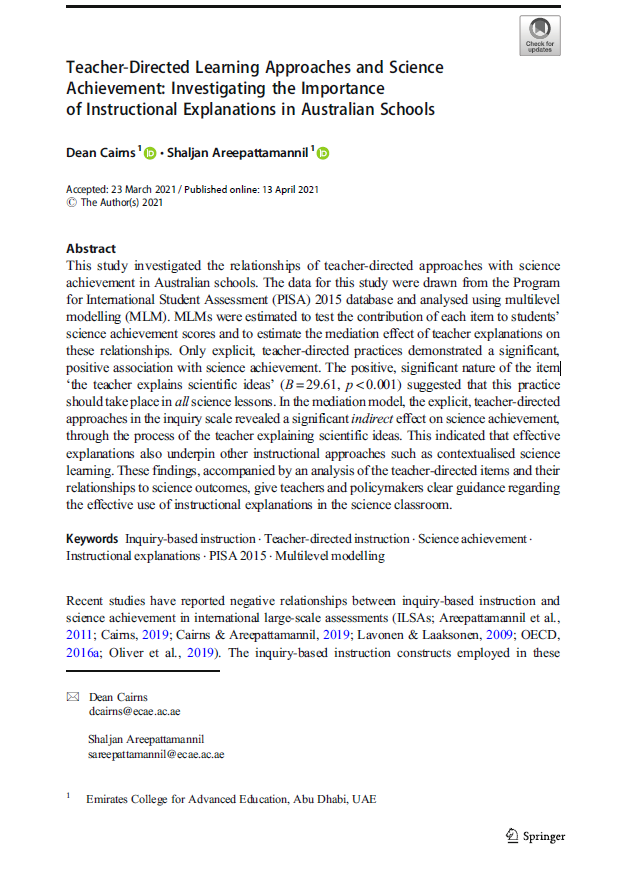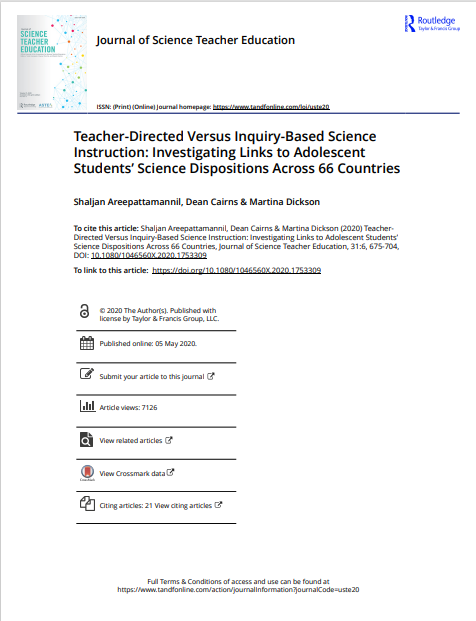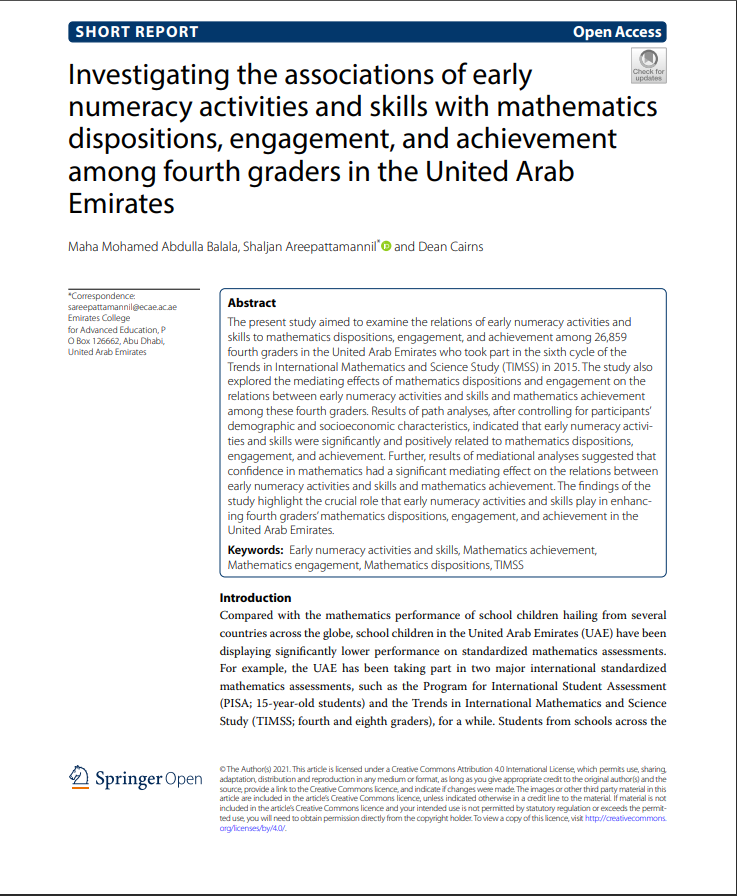Epistemological Beliefs About Science and Their Relations to Gender, Attitudes to Science and Science Achievement in UAE Schools
Publisher
Springer Nature
Date Issued
2023
Description
Beliefs about knowledge and knowing are referred to as epistemological beliefs. Scientific epistemological beliefs relate to the nature and acquisition of science knowledge and, are central to promoting deeper, meaningful learning. As gender performance gaps are evident for science achievement in UAE government schools, this study seeks to investigate the relative importance of science epistemological beliefs for 15-year-olds using data drawn from the PISA 2015 cycle. Results of mediation analyses for the whole group model, indicate that overall enjoyment of science and instrumental motivation to learn science are the strongest predictors of scientific literacy and these effects are partially mediated by students’ epistemological beliefs about science. Statistically significant differences between the male-only and female-only groups were observed for the hypothesised models employed in the study. For the male-only group, epistemological beliefs about science negated the negative relationship between science achievement and interest in science, and the direct effect of extrinsic motivation on science achievement was stronger than for females. These findings provide evidence relating to the importance of scientific epistemological beliefs for males and females and their associated peripheral attitudes and beliefs about learning. This chapter outlines the practical implications for science teaching methodologies in UAE schools.
Member of




